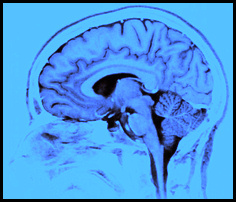
The brain the brain… words and all… let’s talk to each other a bit better, eh?
I’ve recently gone through some of Chris Howard’s NLP Training material and the following Complex Meta Program questions, and associated responses / actions, were very interesting to me.
The point of asking these particular type of questions to the interviewee is to see how the think and would handle situations related to the though processes tested during the interview. A kind of litmus test for personality / thinking styles / behavior tendencies for the situations relevant to the tailored questions… a GREAT resource for HR folk who have some difficult decisions to make in the hiring process.
These are also GREAT hints into the whole “behavioral interview” process that is very common in the career search arena. If you think about what information the interviewer is trying to garner from you, then the questions / answers don’t matter so much. So stop being so nervous! :)
Here are some notes I took while listening to this portion of the training session / audiobook:
???COMPLEX META PROGRAMS / Discovery Questions:
[01] What do you want in a car? What’s important about a car to you?
– looking for language cues, do they speak with “toward” or “away” language?
[02] Why are you choosing to do what you are doing?
– for possibility or necessity?
[03] How do you know when you are doing a good job?
– frame of reference check: internal, external, balanced, internal with external check, external with internal check
[04] How do you know when someone else is good at what they do?
– Convincer representational filter: see it, hear it, read about it, do it with them to witness
[05] How often does someone have to demonstrate competency to you before you are convinced?
– Convincer demonstration filter: automatic, number of times, period of time, consistent
[06] Do you know what you need to do to be good at a job? What about someone else? Do you find it easy or not so easy to tell someone?
– Management direction filter: good at managing self only (don’t know what others need to do, self+other, others, self but not others (know what others need but don’t like)
[07] When you come into a situation do you usually act quickly after sizing it up or a complete study of all consequences and then act?
– Action filter: active, reflective, both, or inactive (stuck in the consequences & no action)
[08] Tell me about a work situation in which you were the happiest / a one-time event?
– Affiliation filter: independent, team, or management player
[09] Tell me about a work situation in which you were the happiest / a one-time event?
– Work preference filter: things, systems, or people
[10] What’s your favorite restaurant? / Tell me about your favorite restaurant?
– Primary interest filter: people, place, things, activity – check for sort order and ‘poundage’; can future-pace and use same order
[11 ] If we were going to work on a project together, would you want to know the big picture or the details first?
– Chunk filter size: global to specific, specific to global
[12] What’s the relationship between these three coins? (1 quarter facing up, other 2 facing a different direction)
– Relationship filter: some sort for sameness (tend to stay on a job for a long time, but do not like a lot of change), some sort for differences (need much variety – short time at same job), some sameness with some exception (up to 7 years – need some variety)
[13] Tell me about a situation (context related) that gave you trouble / one time event.
– Emotional Stress Response: attune sensory acuity to responses: Visual, feeling, chooser
[14] What direction is the past and what direction is the future for you?
– Time storage filter: they will tell you, they will point, and you will find out if the time-line runs through them (in-time=perceiver) or is all out in-front (through time=judger)
[15] What was the last thing you said to yourself just before you got out of bed this morning?
– Modal Operator Sequence: utilize response sequence to influence behavior
[16] Watch person during story telling / doing other things for tendencies toward “downtime” or “uptime”
– Attention Direction: those in downtime during other people talking might not be great for customer service positions, for example
[17] When you need to work through a problem/challenge in your life, is it absolutely necessary to talk about with someone else or work through it by yourself only?
– Information processing style: force the answer into one of the two choices – no maybe’s: external processors or internal processors; useful in couples
[18] If someone you knew quite well said to you “I’m thirsty”, would you find the comment ‘interesting’ but probably do nothing about it or would you feel really compelled to do something about it?
– Listening style: literal (acknowledge & not act) or inferential (feel compelled to do something)
[19] If you felt that someone around you was not performing as well as they should, would you: (1) come to the point and tell them directly or (2) hint, imply, and give them clues
– Speaking style: literal (tell directly) or inferential (hints and clues)